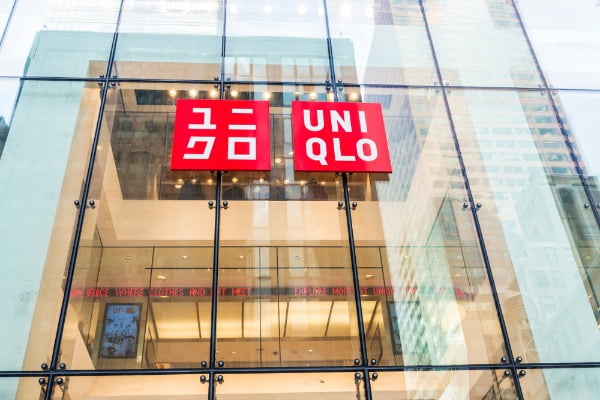![Korean ships were stuck with ugly hair... UNIQLO ranked No. 1 in the world market [정영효의 일본산업 분석]](https://i0.wp.com/img.hankyung.com/photo/202103/01.25688813.1.jpg?w=560&ssl=1)
Japan’s Fast Retailing, which operates UNIQLO, has become the world’s largest apparel company in the middle of last month, overtaking the Spanish Inditex Group, the operator of Zara. On the 16th, the market capitalization of Fast Retailing was 10,872.5 billion yen (about 114 trillion won), ahead of Inditex of 88.1 billion euros (about 110 trillion won) for the first time.
After listing on the Tokyo Stock Exchange (IPO) on November 4, 1997, the stock price of Fast Retailing has risen 100 times. The market cap of the Japanese stock market also climbed to sixth. The gap with Wacoal Holdings (149.4 billion yen), the second-ranked listed clothing company, widened 70 times.
It is analyzed that the reorganization of the business structure in the direction of increasing the proportion of online before the spread of the novel coronavirus infection (Corona 19) has attracted investors. Since 2016, UNIQLO has defined itself as an’information manufacturing and retailer’ and has attached integrated circuit (IC) tags to all products. While analyzing the sales data collected through this, it has established a production system using artificial intelligence (AI) in cooperation with external companies such as Google. Thanks to this, the proportion of online sales increased to 15.6% of total sales last year.
Toyota sold 9.35 million vehicles in the world last year, surpassing 9.3 million Volkswagen and returned to the world’s No. 1 in five years. It is evaluated that it is actively responding to changes in the automobile industry, such as the start of construction of’Woven City’ on the 23rd of last month. Woven City is a smart city (a city where all infrastructure is connected via the Internet) with a scale of 700,000 square meters on the factory site at the foot of Mt. Fuji. Toyota’s market cap, which remains firmly the No. 1 market capitalization of the Japanese stock market, is about 25.85 trillion yen, three times larger than that of Honda (about 5.6 trillion yen) and Nissan (2.5 trillion yen) combined.
Japan Computer, the world’s largest motor manufacturer, maintains its No. 1 position through ceaseless M&A. Since 1984, it has acquired 57 domestic and foreign companies and business units to reinforce insufficient skills and manpower. As you can see, 39 out of 57 M&As have been concentrated since 2012, the pace of transformation is accelerating in line with the changes in the global industrial structure.
The number of cases of delisting by raising the stake of subsidiaries to 100% is also a noticeable change of Japan’s No. 1 companies since Corona 19. By the end of the third quarter of last year, there were 15 companies that delisted their subsidiaries so that both the parent and subsidiaries were listed on the stock market at the same time. It surpassed the total size (12 locations) in 2019 in 3 quarters.
NTT, Japan’s largest telecommunications company, spent 4.2 trillion yen (about 46 trillion won) to delist its mobile telecommunications subsidiary, NTT DoCoMo. Sony and Itochu Corporation also owned 100% of their shares in Sony Financial Holdings, a financial subsidiary and Family Mart, a convenience store subsidiary 400 billion yen and 580 billion yen each were invested in securing.
It is an analysis that this phenomenon appears because the need for the entire group to respond to changes in the industrial structure after Corona 19 has increased. According to the Nomura Capital Market Research Institute, the proportion of subsidiaries listed at the same time as the parent company among all listed companies decreased from 20% in 2006 to 7% in 2019.
Tokyo = correspondent Jeong Young-hyo [email protected]
Ⓒ Hankyung.com prohibits unauthorized reproduction and redistribution
